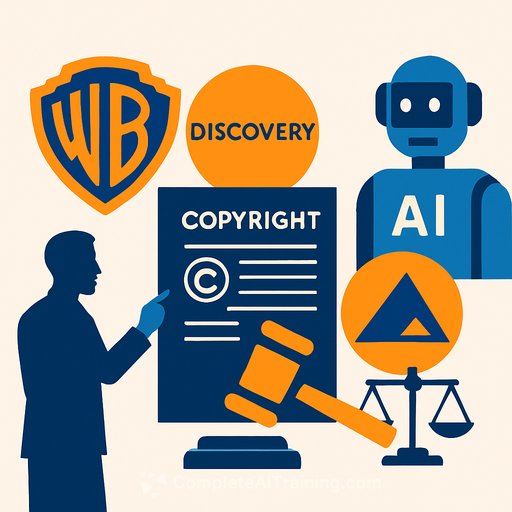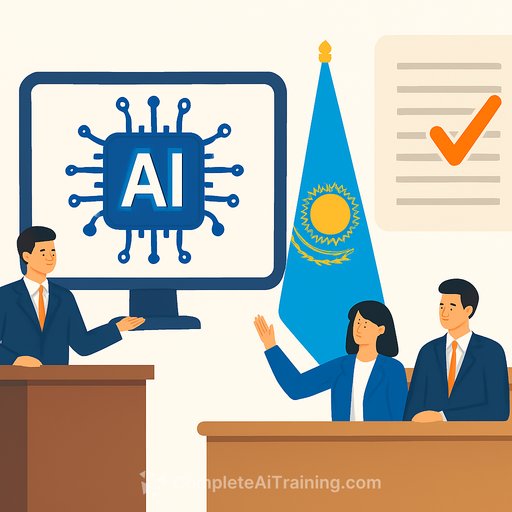Warner Bros. Discovery Sues Midjourney for Copyright Infringement
Warner Bros. Discovery has filed a lawsuit against Midjourney, a widely used AI image generator, accusing the company of copyright infringement. The suit alleges that Midjourney’s platform enables users to create images and videos featuring iconic characters owned by Warner Bros. Discovery, without authorization.
The complaint, submitted to a federal court in California, claims Midjourney’s business model relies on “brazenly” using Warner Bros. Discovery’s intellectual property. This includes characters from DC Studios like Superman, Wonder Woman, and The Joker, as well as Looney Tunes, Tom and Jerry, Scooby-Doo, and Cartoon Network properties such as Rick and Morty.
Studio’s Position on the Lawsuit
A Warner Bros. Discovery spokesperson emphasized the company’s commitment to protecting its creative works. “The heart of what we do is develop stories and characters to entertain our audiences,” the statement read. “Midjourney is blatantly and purposefully infringing copyrighted works, and we filed this suit to protect our content, our partners, and our investments.”
This lawsuit is part of a broader push by major studios to hold AI companies accountable for using their content without permission. Alongside Warner Bros. Discovery, Disney and Universal have also sued Midjourney earlier this year, accusing it of profiting from their copyrighted movies and shows.
Examples and Evidence Presented
The lawsuit includes side-by-side comparisons of Midjourney-generated images and original Warner Bros. Discovery visuals. One example shows Midjourney’s AI producing a Bugs Bunny image closely resembling his look in Space Jam: A New Legacy. Another comparison features the AI’s version of Rick and Morty scenes against official stills from the show.
Warner Bros. Discovery alleges that Midjourney returns images of its characters even when prompted with generic terms like “classic comic book superhero battle,” indicating the AI was trained on the studio’s proprietary content.
One highlighted case involves a Midjourney-generated image of Batman resembling Christian Bale’s portrayal in The Dark Knight, including costume details unique to that film. This suggests the AI system was trained on or had access to copyrighted materials with minimal alterations.
Legal Implications and Industry Impact
The core legal question revolves around whether AI companies can claim fair use protection for training their models on copyrighted content. A recent ruling favored Amazon-backed Anthropic on this issue, recognizing AI training as transformative. However, that case is still headed to trial over allegations of illegal mass downloading of copyrighted books.
Warner Bros. Discovery’s lawsuit seeks either Midjourney’s profits related to the alleged infringement or statutory damages up to $150,000 per work infringed. The final outcome could set important precedents for how AI companies handle copyrighted material in training datasets.
Other major studios such as Paramount, Skydance, Amazon MGM Studios, Apple Studios, Sony Pictures, and Lionsgate have not yet taken legal action but are closely observing developments.
Broader Context
- AI companies often train models on vast amounts of internet data without compensating original creators.
- This practice has triggered lawsuits from authors, artists, record labels, news organizations, and studios over concerns that AI tools reduce demand for original content.
- Midjourney currently offers four paid subscription tiers ranging from $10 to $120 per month, making its outputs accessible to millions of users.
- The specifics of Midjourney’s training data and methods remain confidential but will be scrutinized during discovery in the lawsuit.
For legal professionals monitoring AI and intellectual property, this case underscores the growing tension between innovation and copyright enforcement as AI technology evolves.
Learn more about legal frameworks and AI developments at Complete AI Training.
Your membership also unlocks:





